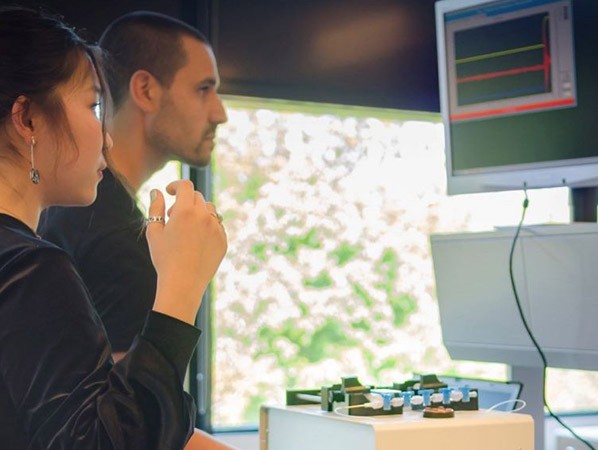
Maastricht University, KULeuven and Hasselt University have developed a sensor technology that tests products for bacteria. New biosensors allow food products to be tested cheaply and quickly during the production process for possible bacterial contaminants.
With a contribution of 850,000 euros from Interreg Vlaanderen-Nederland, Dutch and Belgian researchers will continue to develop this new technology and test it in practice through the AgrEUfood project. This test can prevent recalls and outbreaks in the future.
Current practice is aimed at having samples tested at regular intervals by specialised laboratories. With this method it can take up to a week to arrive at a definitive analysis. It cannot be ruled out that certain contaminants will not be detected in time, which means that there is a real risk of a recall action with associated economic loss and damage to the company's image.
To implement the technology on the workfloor, they work with companies that have experience in the industrialization of both hardware and software. The universities take care of the technology, they make it an application. To see if the technology really works in practice, Alberts NV, a Belgian start-up that has developed a fully automatic smoothie machine, and Dürüm Company NL, a producer of tortilla-based products, will test the technology.
ILVO is responsible for the microbiological reference measurements and the communication and demonstration of the use of the biosensors developed in AgrEUfood to interested Flemish companies. Brightlands Campus Greenport Venlo has brought all the Dutch parties within the project together and will ensure that the knowledge from the project will be made available to everyone through workshops, among other things.
Saskia Goetgeluk, director of Brightlands in Venlo: 'The knowledge institutes and the business community in the Dutch-Belgian border region are working on the basis of patented knowledge towards a good application in the market. In addition, this project is an important step in the development of Maastricht University's Faculty of Science & Engineering on the campus in Venlo'.
Source: © Brightlands Campus